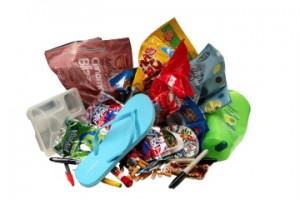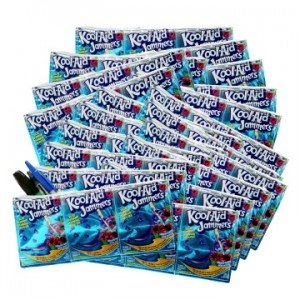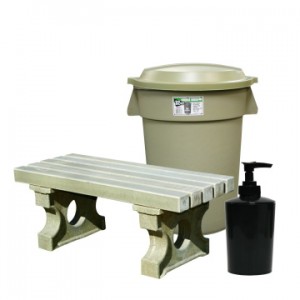
The Cycle Of Life – September 2012 print ed.
By Andrew Joseph, Features Editor
Sustainability recycling TerraCycle TerraCycle Canada UpcyclingGreen entrepreneurship reaps many different rewards in global war on packaging waste
Turning poop into gold may sound like extreme alchemy gone wild, but it’s something that Toronto-born entrepreneur Tom Szaky has been doing literally since his undergrad days back at Princeton University, where he made much more than a few dimes selling worm poop as an all-natural, Earth-friendly, low-cost fertilizer that he was convinced was a product just waiting for open-minded retail customers to embrace.
And embrace it they did—warmly enough to enable Szaky to incorporate his fledgling student-run operation into TerraCycle, Inc.—today a thriving, globally-operating company leading the way in collecting many types of hard-to-recycle packaging products and turning them into new innovative, affordable consumer goods while offering a brilliant end-of-life packaging solution for millions of tonnes of used packaging headed for landfills.
Founded in 2001 as part of a business plan for a Princeton University student contest, TerraCycle’s beginnings were as humble as one would expect, with Szaky and fellow student Jon Beyer manually collecting waste from the school’s dining hall, processing it into the so-called ‘Worm Gin’ to feed their worms, and turning the worm poop into a fertilizer mix that they packed into discarded beverage containers.
The experience laid foundations for a strong recycling culture that has paid off big-time for TerraCycle over the past decade.
In fact, it almost paid off handsomely in 2003 when TerraCycle won a US$1-million top prize in a local contest looking for a best business plan for an upstart venture.
However, after hearing about the proposed business plans that the contest’s main sponsor had in mind for his company, Szaky refused to collect the cash in order to retain full control of TerraCycle.
It proved to be a worthwhile gamble, as within a few years the company already had the likes of Walmart Canada, Home Depot, Whole Foods Market and other retail chains among its customers—enabling the company to operate on solid financial footing, while sticking to its core values of helping the modern consumer society to minimize its ultimately unsustainable packaging footprint.
By 2007, TerraCycle took its waste reduction to a whole new level after being approached by Honest Tea to see if TerraCycle could do something with their Honest Kids fruit beverage brand’s PET (polyethylene terephthalate) pouches.
After figuring out a cost-effective way to sew the empty pouches together, TerraCycle began ‘upcycling them into colorful pencil cases for school kids.
Before long, the company began collecting and sorting all sorts of other consumer packaging waste that could be upcycled into useful new products.
To secure adequate supply of discarded flexible packaging, TerraCycle partnered up with schools and other public institutions to collect the waste and sell it to TerraCycle, who would then have third-party manufacturers make colorful new products bearing the original brand’s signature banners, icons, logos, graphics, etc.
 The beauty of the whole virtuous circle is that absolutely none of the collected pouches and other flexi-packs ever come near a landfill, according to TerraCycle Canada’s director of communications Denise Barnard, while brand-owners have a great opportunity to make a valid and credible statement about their sense of environmental responsibility.
The beauty of the whole virtuous circle is that absolutely none of the collected pouches and other flexi-packs ever come near a landfill, according to TerraCycle Canada’s director of communications Denise Barnard, while brand-owners have a great opportunity to make a valid and credible statement about their sense of environmental responsibility.
‘It’s all about taking waste products and using them to create new upcycled and recycled products that feature the original brand, which in turn provides the [brand-owner] partner company with great recognition,” Barnard told Canadian Packaging in a recent interview.
“And because of the significantly lower material costs, TerraCycle can have these new eco-friendly products manufactured without charging much of a premium,” says Barnard, citing an extensive list of stylish-looking upcycled products such as binders, pencil cases, folders, lunchboxes, backpacks, tote bags, faux jewelry, potting supplies, bird-feeders, trash cans and recycling bins. (See Pictures)
Global Appeal
Naturally, many leading multinational brand-owners and retailers were quick to seize on the idea—not only in North America, but also in the U.K., Argentina, Mexico, Germany, Brazil, France, Sweden, The Netherlands, Denmark, Norway, Belgium, Luxembourg, Switzerland and Spain.
In Canada, the company is currently working with over 20 major brands—including Nestlé, Kool-Aid, Mr. Christie’s, Huggies, Sally’s, Schneiders, Garnier, Old Navy and Sharpie—to collect their used packaging that would otherwise end up in a landfill.
“About 95 per cent of all the waste we receive is recycled, with five per cent upcycled into new products,” says Barnard.
Most of the waste in Canada is collected via TerraCycle-operated Brigade programs, Barnard explains, which involves about 800,000 people across Canada, with elementary school children accounting for about 70 per cent of that total.
All the collected waste—along with any additional pre-consumer waste, such as overruns from its business partners—is sent directly to the company’s New Jersey facility, where it is separated, sorted and shipped to local third-party manufacturers for upcycling.
Barnard says the company currently operates 22 Brigade programs across Canada, with several new ones launched so far this year: Old Navy Flip-Flop Brigade; Cigarette Waste Brigade; Staples Brigade (in-store collection of used writing instruments); Schneiders Lunchmate Brigade; and the London Drugs Brigade.
Launched last month across London Drugs Limited’s 76 stores in western Canada, the London Drugs Brigade encourages shoppers to drop off their used beauty packaging and chocolate wrappers at collection boxes in London Drugs stores, with the retailer donating $0.02 per each collected package to the Canadian Cancer Society and shipping them on to TerraCycle.
Says Barnard: “As of the end of August, TerraCycle Canada has helped divert 54,995 kilograms (121, 244 pounds) of packaging waste from landfills in Canada by literally creating new life for old packaging, and we are really just getting started.”
Photographs courtesy of TerraCycle Canada, ULC.
Advertisement

